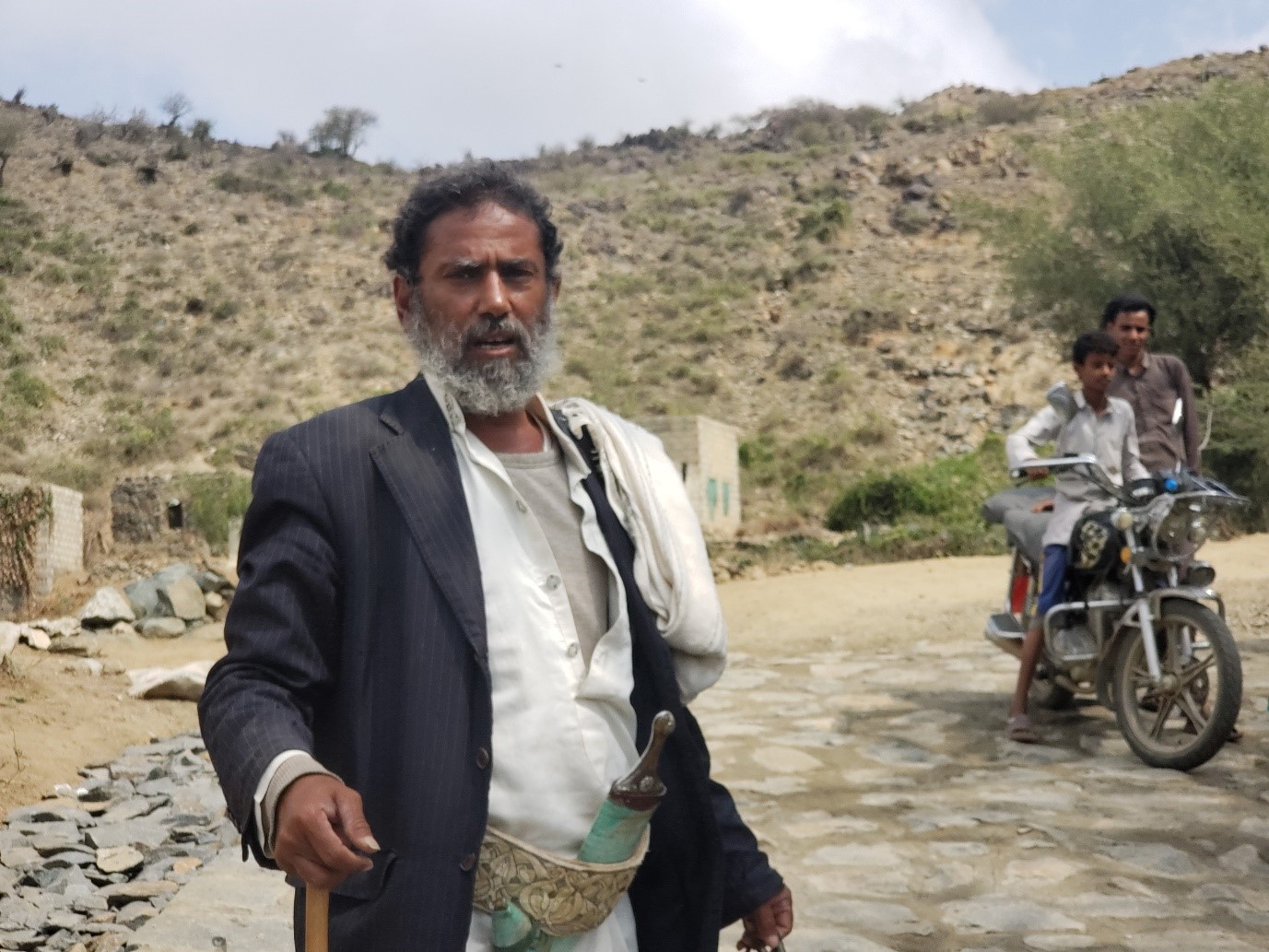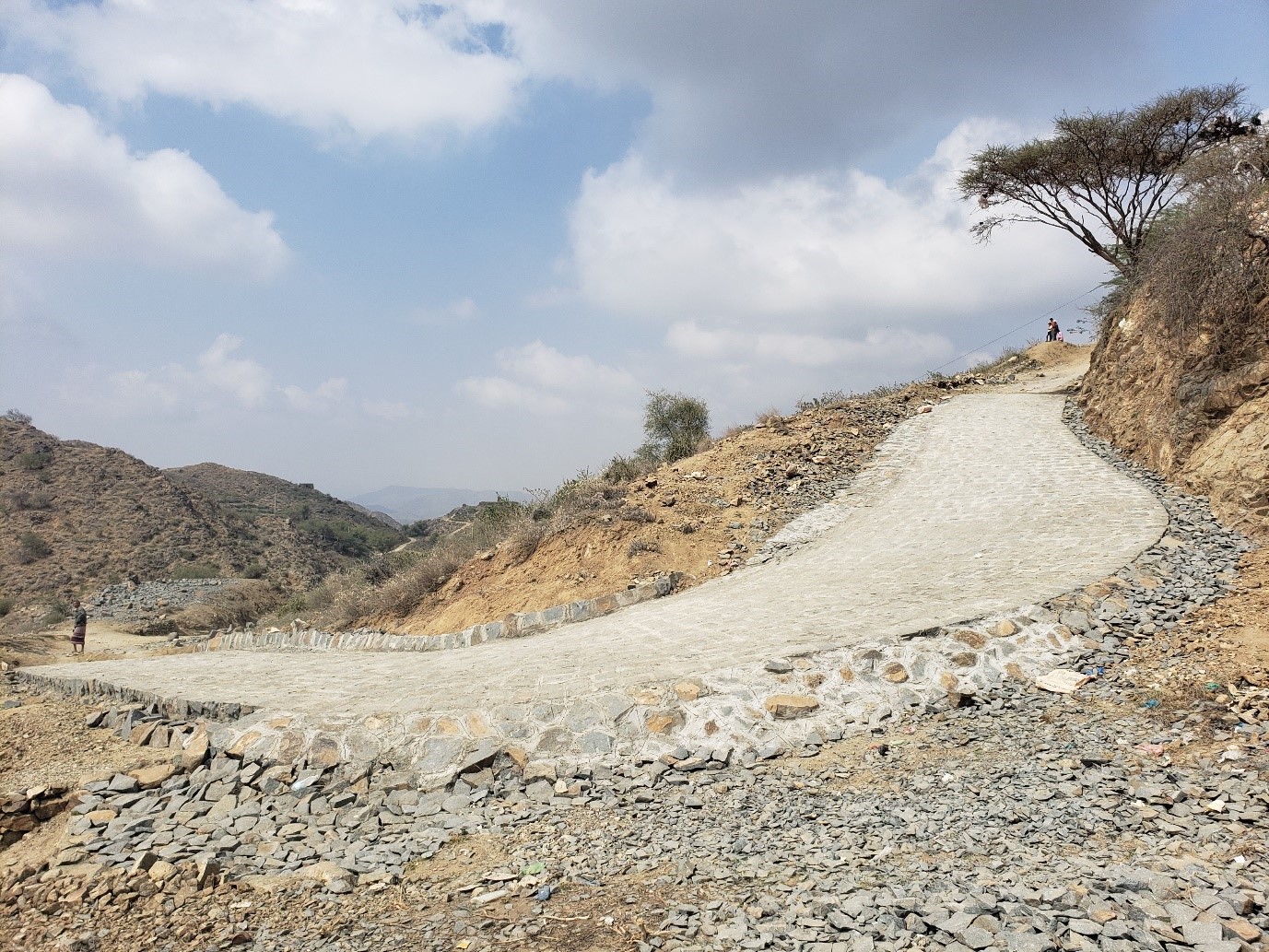For the seventh consecutive year, Yemeni people continue to bear the brunt of the world’s worst humanitarian crisis. Dire food insecurity continues to push the country to the brink of famine. 20.1 million Yemenis are in need of food assistance to survive, including 2.1 million children and 1.2 million pregnant and lactating women. Due to the conflict and COVID-19, prices have risen significantly, making food and other essentials inaccessible for millions.
Yemen is mostly mountainous, with a large proportion of its population living in rural settlements on the top of mountains. Given that roads are an important lifeline, poor roads deprive the locals of accessing basic services such as water, health and education. “The road to our village was so rough that cars couldn’t move,” says Ahmed Shuai, 55 years old, from Hajjah governorate.
Ahmed lives with his six children in a remote village in Kua’adinah district of Hajjah governorate. Ahmed depends on farming his small piece of land as the main source of income to secure food and essential needs for his family. “The prices of everyday goods like food and water were high due to transportation costs,” he says. “Some drivers refused to transport materials at any cost due to the miserable condition of the road.”
“Women used to carry much-needed food items like flour, rice and grains on top of their heads,” Ahmed says. “Some lucky locals own donkeys, which help them to fetch water and transport items. I still remember when we carried my elderly father on our shoulders to reach the nearest hospital.”



